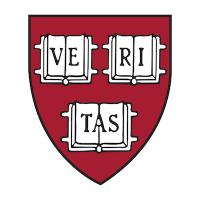What do they do?
Assist judges in court or by conducting research or preparing legal documents.
Also known as:
Appellate Law Clerk, Career Judicial Law Clerk, Career Law Clerk, Court of Appeals Law Clerk, Federal Law Clerk, Judicial Assistant, Judicial Clerk, Judicial Law Clerk, Law Clerk, Law Researcher, Pro Se Law Clerk, Term Law Clerk
-
0%
Change
Ranks #31 in job growth rate10Job Openings
Ranks #26 in net job growth
Looking for colleges that offer a specific major? Use the College Match Tool to find your best-matched schools and discover your estimated Net Price!
- Doctorate or Professional Degree (49%)
- Bachelor's degree (16%)
- Some college, no degree (14%)
- Associate's degree (8%)
- Master's degree (7%)
- High school diploma equivalent (6%)
- Less than high school diploma (1%)
People in this career often have these skills:
- Reading Comprehension - Understanding written sentences and paragraphs in work-related documents.
- Active Listening - Giving full attention to what other people are saying, taking time to understand the points being made, asking questions as appropriate, and not interrupting at inappropriate times.
- Critical Thinking - Using logic and reasoning to identify the strengths and weaknesses of alternative solutions, conclusions, or approaches to problems.
- Writing - Communicating effectively in writing as appropriate for the needs of the audience.
- Speaking - Talking to others to convey information effectively.
- Active Learning - Understanding the implications of new information for both current and future problem-solving and decision-making.
- Complex Problem Solving - Identifying complex problems and reviewing related information to develop and evaluate options and implement solutions.
People in this career often know a lot about:
- Law and Government - Knowledge of laws, legal codes, court procedures, precedents, government regulations, executive orders, agency rules, and the democratic political process.
- English Language - Knowledge of the structure and content of the English language including the meaning and spelling of words, rules of composition, and grammar.
- Administrative - Knowledge of administrative and office procedures and systems such as word processing, managing files and records, stenography and transcription, designing forms, and workplace terminology.
People in this career often have talent in:
- Written Comprehension - The ability to read and understand information and ideas presented in writing.
- Oral Comprehension - The ability to listen to and understand information and ideas presented through spoken words and sentences.
- Written Expression - The ability to communicate information and ideas in writing so others will understand.
- Oral Expression - The ability to communicate information and ideas in speaking so others will understand.
- Inductive Reasoning - The ability to combine pieces of information to form general rules or conclusions (includes finding a relationship among seemingly unrelated events).
- Near Vision - The ability to see details at close range (within a few feet of the observer).
- Speech Recognition - The ability to identify and understand the speech of another person.
- Speech Clarity - The ability to speak clearly so others can understand you.
- Problem Sensitivity - The ability to tell when something is wrong or is likely to go wrong. It does not involve solving the problem, only recognizing that there is a problem.
- Deductive Reasoning - The ability to apply general rules to specific problems to produce answers that make sense.
- Information Ordering - The ability to arrange things or actions in a certain order or pattern according to a specific rule or set of rules (e.g., patterns of numbers, letters, words, pictures, mathematical operations).
- Category Flexibility - The ability to generate or use different sets of rules for combining or grouping things in different ways.
People in this career often do these activities:
- Prepare documentation of legal proceedings.
- Prepare legal documents.
- Research relevant legal materials to aid decision making.
- Confer with court staff to clarify information.
- Identify implications for cases from legal precedents or other legal information.
- Meet with individuals involved in legal processes to provide information and clarify issues.
- Record information from legal proceedings.
- Maintain the order of legal documents.
- Direct courtroom activities or procedures.
- Coordinate legal schedules or activities.
- Supervise activities of other legal personnel.
- Administer oaths to court participants.
This page includes data from:

 Occupation statistics: USDOL U.S. Bureau of Labor Statistics Occupational Employment Statistics
Occupation statistics: USDOL U.S. Bureau of Labor Statistics Occupational Employment Statistics




























